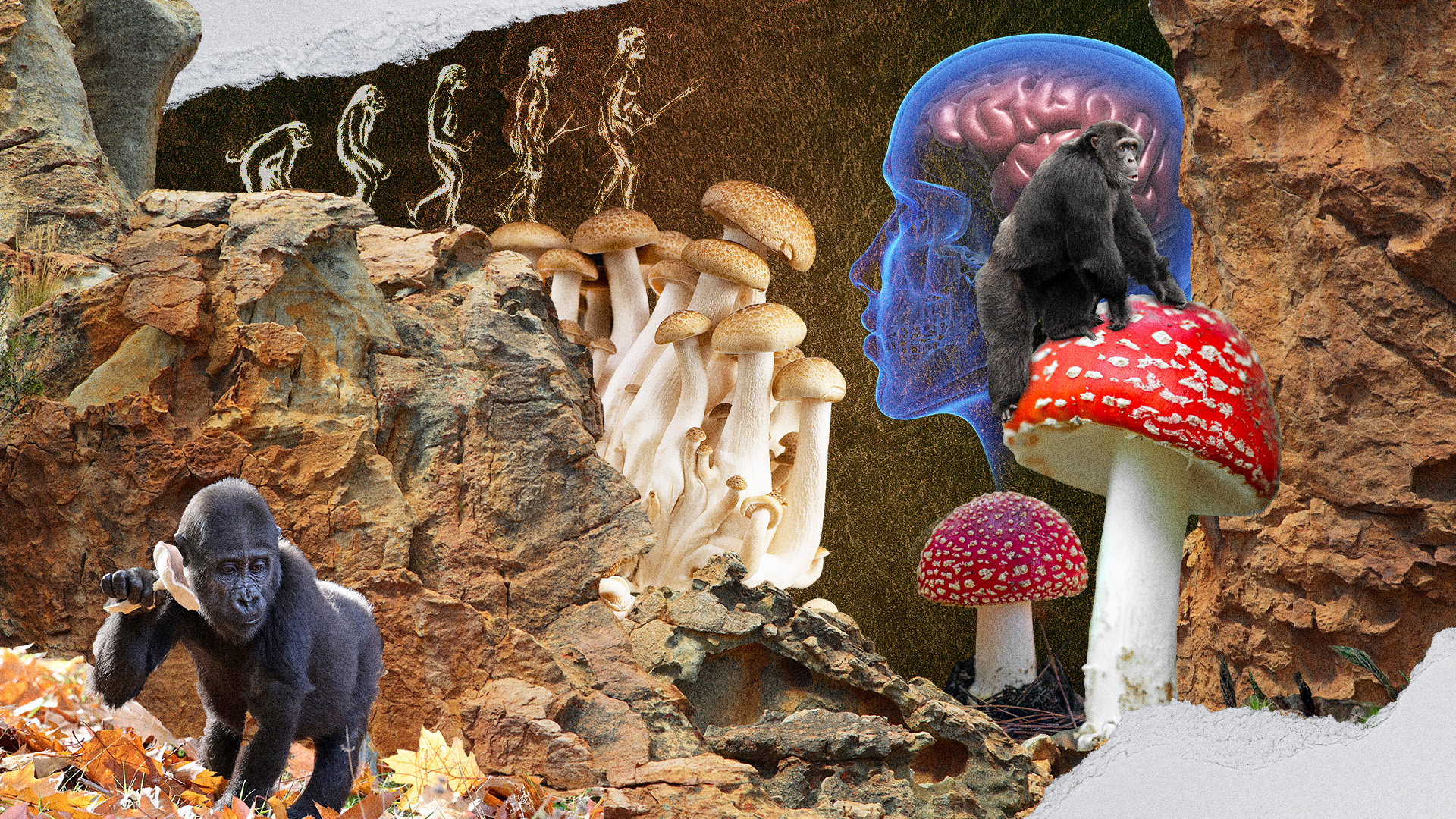This intriguing hypothesis suggests that the evolution of human consciousness may have been profoundly affected by our ancestors’ consumption of psychedelic mushrooms. As we explore the capabilities of psychedelics in modern research, it’s worth considering how this theory interconnects with our current understanding of the human mind and its development.
Let’s explore what ancient theories have to teach us about contemporary science.
The Stoned Ape Theory: Origins and Misconceptions
The stoned ape theory, as envisioned by Terence McKenna, a renowned ethnobotanist, and further discussed by his brother, Dennis McKenna, an expert in ethnopharmacology, presents a bold narrative about human evolution.
Over the years, this theory has evolved, sparking both intrigue and skepticism within the scientific community. However, Dennis McKenna has expressed concerns about how the theory is often misrepresented. He believes the term “stoned ape” oversimplifies and distorts the original hypothesis, detracting from the complexities of human cognitive development.
The Hypothesis and Human Evolution
At the heart of the stoned ape theory lies the notion that psilocybin mushrooms significantly influenced the development of human consciousness. The McKennas theorize that our ancient ancestors’ consumption of psychedelic fungi catalyzed crucial cognitive advancements. This was particularly evident in the development of language and self-awareness.
Falk suggests that psychedelics might have played a role in this unprecedented burst of creativity and complex thinking. This provides a new lens through which to view the evolution of human consciousness.
Psychedelic Experience and Human Development
In the Pleistocene era, a pivotal period for human evolution, Terence McKenna suggested that the qualities of psychedelic experiences played a crucial role in our development.
He believed that psychedelics, particularly mushrooms, enhanced sensory perception and empathy, fostering cognitive advancements in early humans.
McKenna proposed that these altered states of consciousness were instrumental in adapting to the epoch’s challenges, aiding in the evolution of thought, problem-solving, and cultural development. This theory places psychedelics at the heart of human evolutionary progress.
The Magic Enhancement of Adaptive Qualities
Building on his hypothesis, Terence McKenna further elaborated on the specific benefits of psilocybin mushrooms. He argued that they offered more than just altered consciousness.
Why You Should Get Your Medical Marijuana Card
Veriheal has satisfied millions of patients nationwide by giving them access to these benefits
- Larger purchase limits
- Peace of mind
- Enhanced legal protection
- Access to higher potency strains
- Save up to 25% on cannabis purchases
- Skip the line at the dispensary
He suggested that these mushrooms could enhance visual acuity, boost sex drive, and foster a greater sense of cooperation among early humans.
Echoing and supporting these ideas, renowned mycologist Paul Stamets has also advocated for the role of psychedelics in human evolution.
Together, their perspectives paint a picture of psychedelics as not just mind-altering substances, but as critical contributors to the adaptive qualities that have shaped human history.
Current Views and Future Prospects
Today, the stoned ape theory occupies a unique position in both academic circles and psychedelic culture.
As Dennis McKenna passionately points out:
“If psychedelics live up to their promise and are integrated into medicine and health care, it will revolutionize paradigms of healing. And I am fond of saying that psychedelics are medicines for the soul, they can heal not only individuals, but society on a global scale if we can integrate and take to heart the lessons that they can teach us. And maybe, just maybe, if mushrooms were present and played a role that catapulted our species into history, maybe now, as history is ending and we transition to some kind of post historical existence, they are there to guide us in that process. We still have much to learn from these humble fungi, as science is confirming.”
While it remains a topic of debate among scholars, it has gained a cult following among enthusiasts of psychedelic exploration.
Looking to the future, there’s a growing anticipation that psychedelics could be integrated further into medicine and society.
This integration promises not only novel treatments for mental health disorders but also a deeper understanding of the human psyche and our evolutionary journey. This could potentially unlock new frontiers in both health care and our understanding of consciousness.


